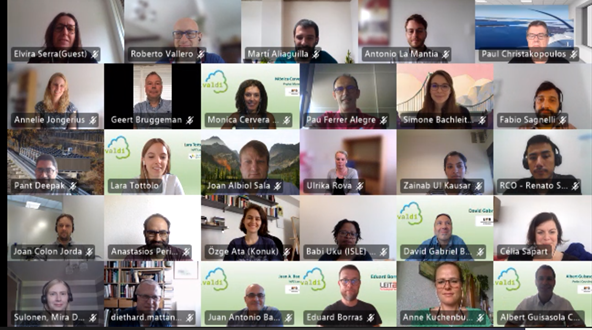Starting June 2021, the EU Horizon 2020 project VIVALDI - innoVative bIo-based chains for CO2 VALorisation as aDded-value organIc acids - will develop a set of breakthrough biotechnologies to transform real off-gases from key bio-based industry (BI) sectors (Food & Drinks, Pulp & Paper, Bioethanol and Biochemicals) into novel feedstock for the chemical industry. By integrating this concept, industries will “kill two birds with one stone”: not only BI’s carbon emissions will be reduced, but the production of organic compounds that today is very energy intensive will become cheaper and more sustainable. The European Union has awarded 7 M€ to the VIVALDI project to transform the bio-based industry into a new, more environmental friendly and competitive sector.
Chemical industry on its way to circular economy
To reach climate targets, industries need to accelerate the transition towards a low-carbon, resource efficiency and circular economy. The chemical sector is one of the most challenging, but also a very promising one, in that context. At the forefront of waste reutilization, bio-based industries (BIs) have the potential to lead the way and create a new and more sustainable sector based on the principle of carbon capture and utilization (CCU) also called CO2 recycling. Based on this circular concept, BI’s will reduce their greenhouse gas (GHG) emissions, their dependency on fossil carbon import and the exploitation of key resources such as energy, raw materials, land and water.
The core of VIVALDI solution is to capture, enrich and transform in a two-steps process (electrochemical and biological) the CO2 captured into four platform organic acids. These resulting compounds have various applications: they can be used in the same site, enhancing the sustainability and circularity of BIs processes and products, or open new business opportunities as building blocks for novel biomaterial (e.g. bioplastics and animal feed). Replicability will be a key aspect of VIVALDI solutions, allowing other biorefineries and other industrial sectors to become more circular and reduce their environmental impact.
Prof. Albert Guisasola i Canudas (CARTIF), VIVALDI project coordinator, said:
“VIVALDI will tackle the issue of CO2 emissions with a comprehensive approach. We have an enthusiastic multidisciplinary team aiming to develop tailor-made value chains for each type of company. We will boost the circularity of the plants with the use nutrients recovered from the same industries and will pave the way for the emerging CO2-based sector.”
European R&D expertise united
The success of the project will be ensured by a multidisciplinary and international consortium led by the GENOCOV research group of Universitat Autònoma de Barcelona. The 16 partners range from BIs (SunPine AB, Damm and Bioagra) and technology developers (VITO, UFZ, LEITAT, Processium, Avantium, Universitat Autònoma de Barcelona, University of Natural Resources and Life Sciences - Vienna, Luleå University of Technology) to end-user (Nutrition Sciences). Novamont will research how to use CO2 along its entire value-chain: from the capture of their CO2 emissions to the conversion of it into new biochemicals. The team is complemented by three knowledge hubs: the sustainability and circularity expert group (BETA from Universitat de Vic), the technology and innovation consultancy (ISLE) and the European Association representing the Carbon Capture and Utilisation community in Europe (CO2 Value Europe).
VITO brings together its expertise on electrocatalysts and gas diffusion electrode development which will be used for electrocatalytic conversion of CO2 to formic acid/methanol. The consortium is ready to transform biorefineries, envisioning a new CO2-based industrial sector that contributes to largely decrease the carbon footprint of the industry and boost the EU’s economy.
The kick-off meeting was held on 14-15 June 2021 in a virtual environment. For more information, please do not hesitate to contact us.
Acknowledgements
The VIVALDI project has received funding from the European Union’s Horizon 2020 research and innovation programme under grant agreement No 101000441.


